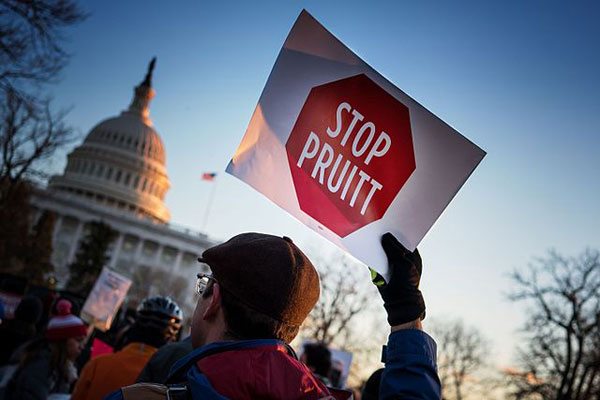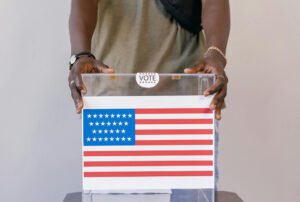
April 24, 2018; Washington Post
As controversy swirls around Scott Pruitt, Environmental Protection Agency Administrator, he’s ignoring it and moving steadily forward with a plan to limit what scientific research can be used to write environmental regulations. This change will please his conservative base and undo protections put in place by prior regulations. For those of us who thought all scientific research was the same, it may be time to think again.
What Scott Pruitt is bringing forward is a set of rules that sound good on paper. Writing for the Washington Post, Juliet Eilperin and Brady Dennis describe the approach and the reaction.
The proposed rule would only allow the EPA to consider studies where the underlying data is made available publicly. Such restrictions could affect how the agency protects Americans from toxic chemicals, air pollution, and other health risks.
Pruitt and proponents describe the new approach as an advance for transparency, one that will increase Americans’ trust and confidence in the research on which EPA decisions are based. “Today is a red-letter day,” he told a group of supporters at agency headquarters. “The science that we use is going to be transparent. It’s going to be reproducible.”
But a chorus of scientists and public health groups warn that the rule would effectively block the EPA from relying on long-standing, landmark studies on the harmful effects of air pollution and pesticide exposure. Such research often involves confidential personal or medical histories or proprietary information.
The move reflects a broader effort already underway to shift how the EPA conducts and uses science to guide its work. Pruitt has upended the standards for who can serve on its advisory committees, barring scientists who received agency grants for their research while still allowing those funded by industry.
Sign up for our free newsletters
Subscribe to NPQ's newsletters to have our top stories delivered directly to your inbox.
By signing up, you agree to our privacy policy and terms of use, and to receive messages from NPQ and our partners.
The move to enact these rules closely follows the failed House of Representatives effort in 2017 to pass the Honest and Open New EPA Science Treatment Act that failed in both the House and the Senate. This effort was led by Rep. Lamar Smith (R-TX), who appeared with Pruitt when he announced these new rules. Apparently, Smith had pitched his “Honest” Act to Pruitt at a meeting in January, and the EPA Administrator incorporated them into his new rules on transparency in research that can be used. In this way, Smith will have circumvented the legislative process and still achieved the rules change he sought, with the help of Scott Pruitt. That meeting with Pruitt and the resulting plans were documented in emails that were obtained by the Union of Concerned Scientists, a scientific advocacy organization.
As conservatives and industries applaud this move by the EPA, looking to a loosening of rules based on less scientific evidence of pollution and harmful health factors from their manufacturing processes, the legal aspects of this may not bode well for their side.
While the administration presses ahead, legal experts warn that the rule may be vulnerable to a court challenge. In unanimous decisions in 2002 and 2010, the U.S. Court of Appeals for the District of Columbia Circuit said the EPA is not legally obligated to obtain and publicize the data underlying the research it considers in crafting regulations.
In the 2002 case, brought by the American Trucking Associations, two judges appointed by Ronald Reagan and one named by Bill Clinton wrote that they agreed with the agency that such a requirement “would be impractical and unnecessary.” The government’s defense had noted that “EPA’s reliance on published scientific studies without obtaining and reviewing the underlying data is not only reasonable, it is the only workable approach.”
A range of scientific organizations are already campaigning to block the rule from being finalized. On Monday, 985 scientists signed a letter organized by the Union of Concerned Scientists, urging Pruitt not to forge ahead with the policy change.
“There are ways to improve transparency in the decision-making process but restricting the use of science would improve neither transparency nor the quality of EPA decision-making,” they wrote. “If fully implemented, this proposal would greatly weaken EPA’s ability to comprehensively consider the scientific evidence across the full array of health studies.”
Only time and the courts and lawsuits will tell where this will end. But in the interim, the Pruitt rules may take effect.—Carole Levine













